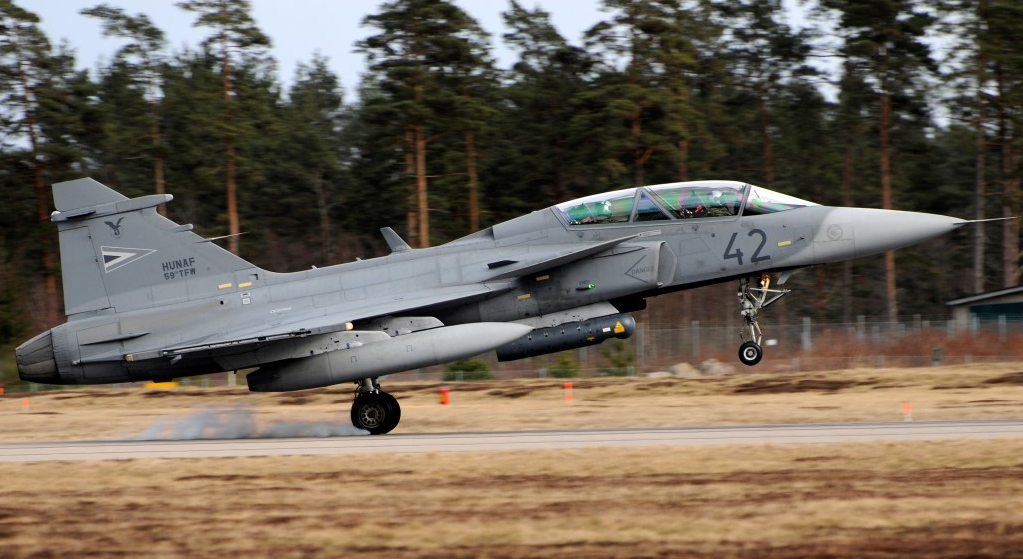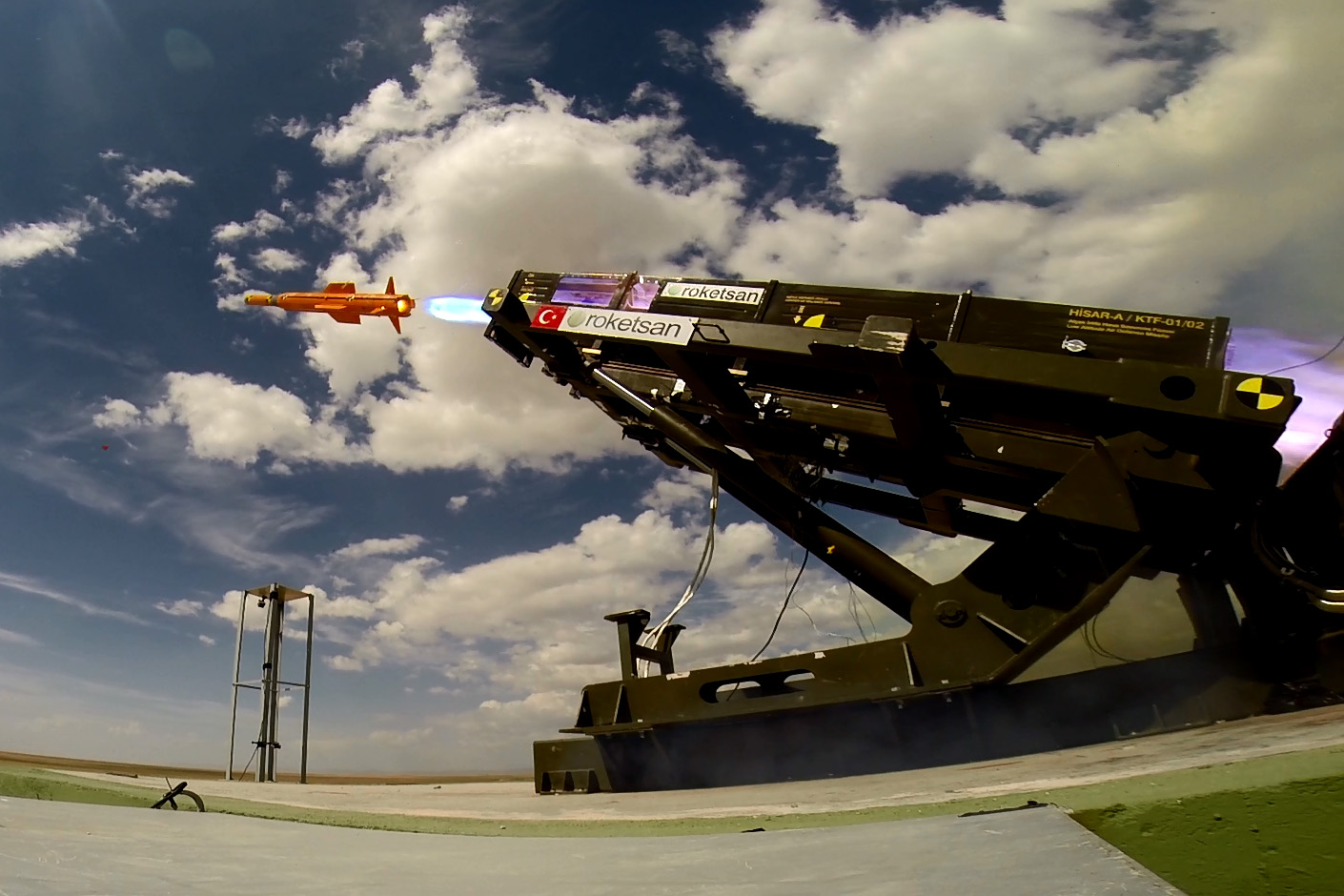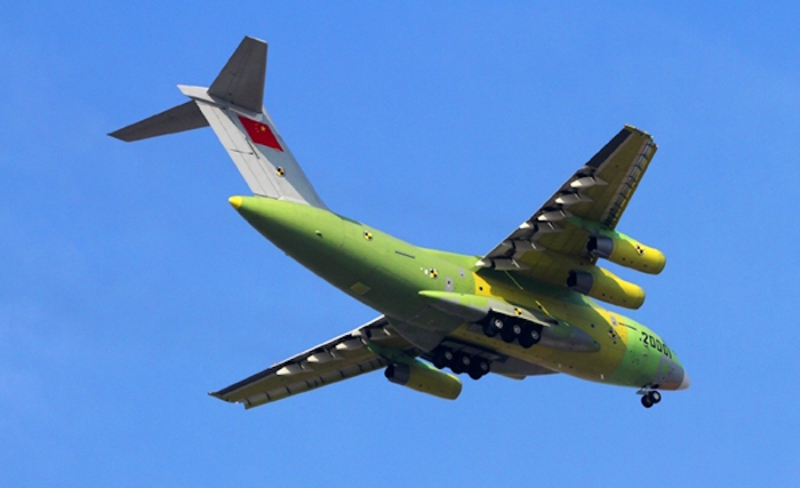56Views 4Comments

Botswana in talks for 8 to 12 JAS-39 Gripen fighters for $1.7bn
The Botswana Defence Force (BDF) leadership officially confirmed that Botswana is in negotiations with the Swedish government for the possible purchase of 8 to 12 Saab JAS-39C/D Gripen multi-role fighters.
The news was conveyed by Lt. Gen. Gaolathe Galebotswe, the commander of the BDF in an appearance before the Parliament of Botswana’s Public Accounts Committee (Defense News).
According to Galebotswe, the Gripen is being sought to replace the BDF’s aged Canadair-built Northrop CF-5 Tiger II fighters, which are increasingly becoming burdensome for the BDF to maintain and operate.
Fighters from the U.S. (F-16), Russia (likely MiG-29 and Su-30) and China (likely JF-17 and FC-20) were also evaluated, but the BDF felt that it could accrue the highest cost savings from the Gripen, which “was found to have the lowest operating costs” according to Galebotswe.
The cost of the Botswana Gripen deal could reach $1.7 billion U.S.
Comment and Analysis
Although the matter has now been confirmed by both Sweden and Botswana, it seems that the process is still in its early stages. It is unclear if Botswana is pining to acquire used or new-built Gripens, but judging from the potential value of the contract, they will likely be new-built.
With its southern neighbour South Africa also operating the Gripen, Botswana may be able to benefit from some synergy in the form of a more localized training and maintenance support infrastructure. In addition, Botswana’s Gripens could potentially be armed with identical air-to-air and air-to-surface munitions too.
On the one hand, Botswana could potentially acquire advanced munitions (e.g. precision-strike bombs and high off-boresight air-to-air missiles) without the cost and regulatory hurdles typically associated with Western arms. On the other hand, South Africa could partially offset its integration and testing costs by selling munitions to Botswana.



4 Comments
by Khalid Riaz
The options evaluated include JF17 among others, and Gripen was chosen because of lowest operating costs. How do operating costs compare among these platforms? We’ve never heard much about JF17 operating costs.
by Matthys Jacobs
The operating cost of the JF-17 is high because of the Klimov RD-93 engine which uses far more fuel than the Volvo RM-12 Engine (A variant of the GE F-404) and also requires far more maintenance and component replacement.
This adds to the cost.
Whereas the flight cost per hour for the Gripen is roughly $7,000 per hour the JF-17 would be roughly double that for the JF-17 because of the fuel economy of the Klimov RD-93.
The Klimov RD-93 engine costs around $3 million for engine overhaul every 12 months after it completes a flight time of between 1,000 hours and 2,500 hours. This was according to an average of Klimov RD-93 users around the world. This is significantly less than say the Volvo RM-12 which has fuel economy being it’s main advantages.
Even though the JF-17 has a cheaper initial acquisition price, the full lifecycle costs when taken into account show’s it ends up costing more.
However, it offers great capability at the lower end of the market. So an operator could purchase more of the JF-17.
I suspect that once the engine is replaced with a modern engine then it would reduce the operating costs substantially.
by Bilal Khan - Quwa
Yes. The PAF is currently content with the RD-93 on the count that it offers the basic performance necessary to keep the JF-17 capable, but there’s no getting past the numbers in regards to maintenance and operation costs. That is likely the reason why PAF officials told Jane’s that the RD-33MK and WS-13 were being considered.
by Khalid Riaz
Matthys Jacobs, Thank you. Very informative answer.